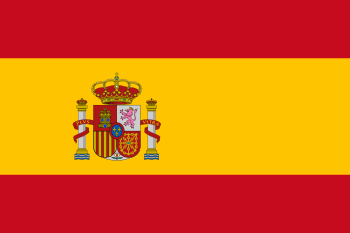
BEFORE WE CONTINUE on the trail of the development of the Orotava Library it will be necessary to pause for a moment to consider the structure of these early days. The membership consisted of between 23 and 25 people, as, to qualify for membership, the applicant had to reside in the Orotava Valley.
In addition to the members, subscribers (temporary members) were welcome. Initially, this was to accommodate visitors and guests staying at the Hotel Taoro but was extended to anyone residing for a short period in the valley. Subscribers were subject to a different tariff. Their number could range from 30 to 40 visitors per annum.
In the year 1910/1911 there had been an upsurge of visitors to Puerto Orotava which resulted in a total of 92 subscribers. It was quickly pointed out at the AGM that the members were to regard this as an exceptional year as the island of Madeira had suffered a virulent outbreak of cholera and tourists had been diverted to Tenerife. This warning was borne out when, in the following year, there were 31 subscribers.
The rule of membership being restricted to residents of the Orotava Valley was frequently challenged both in committee meetings and at the AGM but nothing changed. At the AGM for 1911/1912 it was proposed that the British Consul be made an Honorary Member of the Library due to the importance of his position. This was vehemently opposed on the grounds that it would create a precedent – a stalling tactic still used to this day. In this case, the proposer resigned in protest.
By now, ten years after the excitement of its initial development, the Library had settled down, actually slowed down, to a routine whereby the Presidency changed year by year and the Committee met only once between AGMs. Several newcomers to the committee could be found in the pages of Burkes Peerage. They were all female. Another thing they had in common was a private income.
From 1907, the Misses Amy and Mabel Drummond-Hay had been keen volunteers during stock-takings and shelf cleaning and by 1913/14 Amy had been voted on to the committee. They were the daughters of James de Vismes Drummond-Hay who was the British Consul in Valparaiso, Chile, after previously being Vice Consul in Tangier.
The Honourable Muriel Devereux was the sister of Robert Devereux the 17th Viscount Hereford, the Premier Viscount of England. She married Mr Anthony Noel Denny, barrister, and they lived in La Chiripa in the Taoro Park. In 1910, Mr Denny was voted on to the committee on which he served for many years.
Lady Goodenough, accompanied by her daughter Frances, first arrived on Tenerife in October 1903. Frances was 25 years old and in poor health. They stayed at the Taoro Hotel and eventually rented a house in the vicinity. Frances joined the committee soon after her arrival but resigned in 1912 as she was too ill to attend the Library meetings. She died in 1924, aged 46 and is buried in La Chercha.
Countess Anna Kinsky was in her early twenties when she met Sir William Howley Goodenough who had just turned 40. He was Military Attaché at the British Consulate in Vienna and she was one of the many aristocrats who inhabited the glittering cities of central Europe. They married in 1874 and had four daughters in rapid succession. By the time of his death in 1898 Sir William was High Commissioner to Southern Africa.
It is possible that Lady Goodenough did not settle permanently on the island until the end of World War One, although she visited regularly as can be seen by the various passenger lists on steamships sailing from Southampton during the first part of the 20th century. Not only was she a Countess in her own right she was also a respected academic having translated from the Catalan into English, the Chronicle of Mutaner, a 14th century Spanish classic. Amongst her other works, she wrote a charming little book, published in 1910, about the village of Guimar, entitled A Corner in the Garden of the Hesperides. The Library has no copy of this book.
In 1913, Harold Tennyson, grandson of the poet Alfred Lord Tennyson, was part of the crew of a training ship visiting Tenerife. He wrote home to his mother saying that he and Prince Albert had joined the Captain in visiting the Orotava Valley. He mentions that they played croquet with Lady Goodenough and Lady Vincent. Prince Albert was to become King George V1, our Queen’s father. Alas, there’s no reference to them visiting the Library.
Sadly, young Harold was killed in 1916 when his ship struck a mine. He was 19 years old.
For the year, October 1913/14 the well-respected Mary Boreham was elected President. She was the first female to receive this accolade and her year of office passed without incident. Naturally the outbreak of World War One made no immediate impact on Little Britain in the Taoro Park.
Mrs Boreham was succeeded by the latest incumbent at the Church, the Rev Thomas Walter who presided over the 1914/15 AGM. At this meeting we receive the first indication that the war was in full progress.
In submitting the report for the year ending 31st October 1915 the committee have to regret the serious loss of revenue and curtailment of the work at the Library occasioned by the war.
Whereby the membership remained stable at 22, the temporary membership fell drastically to six. In addition, income from lettings was nil.
At the first committee meeting, Mr Denny proposed that subject to the approval of the AGM and also subject to obtaining free carriage to England, a number of the least valuable books in the Library be given for the use of soldiers in hospitals. The proposal was received enthusiastically and passed unanimously. It was decided to act immediately without waiting for the permission of the AGM. The Secretary was instructed to write to Mr Bellamy to ask for free carriage of the books to Liverpool by a steamer of the Elder Dempster Company.
Mr Farrow Bellamy, a wealthy shipping agent and hotelier, living in Santa Cruz, would have had a quiet chuckle on receiving the request, especially as he was barred from becoming a member of the Library. However, he must have complied immediately because, at the committee meeting held in May 1916, the secretary read out a letter from the Honorary Secretary of the War Library, Marble Arch, London acknowledging the receipt of 421 books presented by the members of the Orotava Library for the use of our soldiers and sailors, which were conveyed free of freight by Messrs Elder, Fyffe and Co.
A sign that all was not well at the Library during the war was that the AGM for Oct 1915/1916 was delayed for four months until March 1917. There must have been many uneasy moments between the British and German residents who were living in a surreal situation.
German U-Boats were patrolling the deep waters of the archipelago and in 1917 they had been instructed to attack and sink all enemy merchant and passenger ships that came their way. This resulted in no ships in, none out. Food was scarce. The British settlers were trapped; prisoners, having no regular contact with home.
These hostile U-boat actions served to bring the United States into the war. From that moment on, the outcome was never in doubt.
During the year 1916/17 Thomas Miller Reid, a founder member of the Library, served his time as President. In October 1917, his youngest son, Guy Patrick Spence Reid, MC, aged 20, was killed in a flying accident but, unsurprisingly, there is no mention of condolence in the Minute Book.
As the war drew to an end, the Library seemed to gain momentum and the new members of the committee proposed innovations which resuscitated the dying entity.
The end of 1917 saw the redoubtable Lady Goodenough taking an interest and she was quickly voted on to the committee.
At the same time the new vicar the Rev. E. Redfern was co-opted into Library service and settled in immediately. He was a man of boundless energy and walked in the footsteps of founder member the Rev. Arthur Humphreys when in 1918 he married Library helper Mabel Drummond-Hay. There was no jealousy from Mabel’s sister, Amy, who served on the committee with her new brother-in-law. Amy moved into the vicarage also.
At the end of the war the returning hero, Captain Noel Spence Reid DSO, MC joined the Library committee and added his youth and enthusiasm. Noel was the eldest son of T.M.Reid.
By 1920 the Library was open three days a week – Monday 10am-12.30pm, Wednesday 2.30-4pm and Friday 10am-12.30pm. Also, after receiving a Goodenough spring clean, the Reading Room was re-opened.
The Rev Redfern, God bless him, proposed that the Library purchase a typewriter which would be a step forward in the presentation of the minutes and correspondence. It would also be a boon to future historians who would find some of the early minutes indecipherable.
In November 1921 the Librarian, Mrs Ashton-Johnston, announced that the Library had a total of over 10,000 books of which 2,700 were fiction. This seems to be seriously lopsided but it gets worse as Mrs Ashton-Johnston added that in view of the number of useless novels with which the shelves are being encumbered we should subscribe to a book lending service in Great Britain which would probably cost about £20 a year. This suggestion was tried but proved to be unworkable.
Earlier in 1920 Mrs Beevor, the sister of the late Mrs Boreham, donated to the Orotava Library the 4,000 books that remained in the library at San Antonio. Mr and Mrs Ashton Johnston carried out the monumental task of cataloguing and arranging the Library to take in the Boreham bequest. This took over a year of patient and careful work with the Librarian and her husband attending the Library most days. Some 770 duplicates were sent to the wife of the British Consul in Santa Cruz so that the Britons living on the other side of the island might form the nucleus of a library. Once again someone had stepped into the breach to help the Library at a difficult time.
We now pass on to the 1920s. Did they roar in the Orotava Valley? They got off to a good start.
In 1921, a notice requesting SILENCE came to be placed in the reading room. Before the war it would have been unnecessary. It remained in place until 2011 when it once again became unnecessary. The notice was being totally ignored.

 Please see
Please see
Leave a Reply